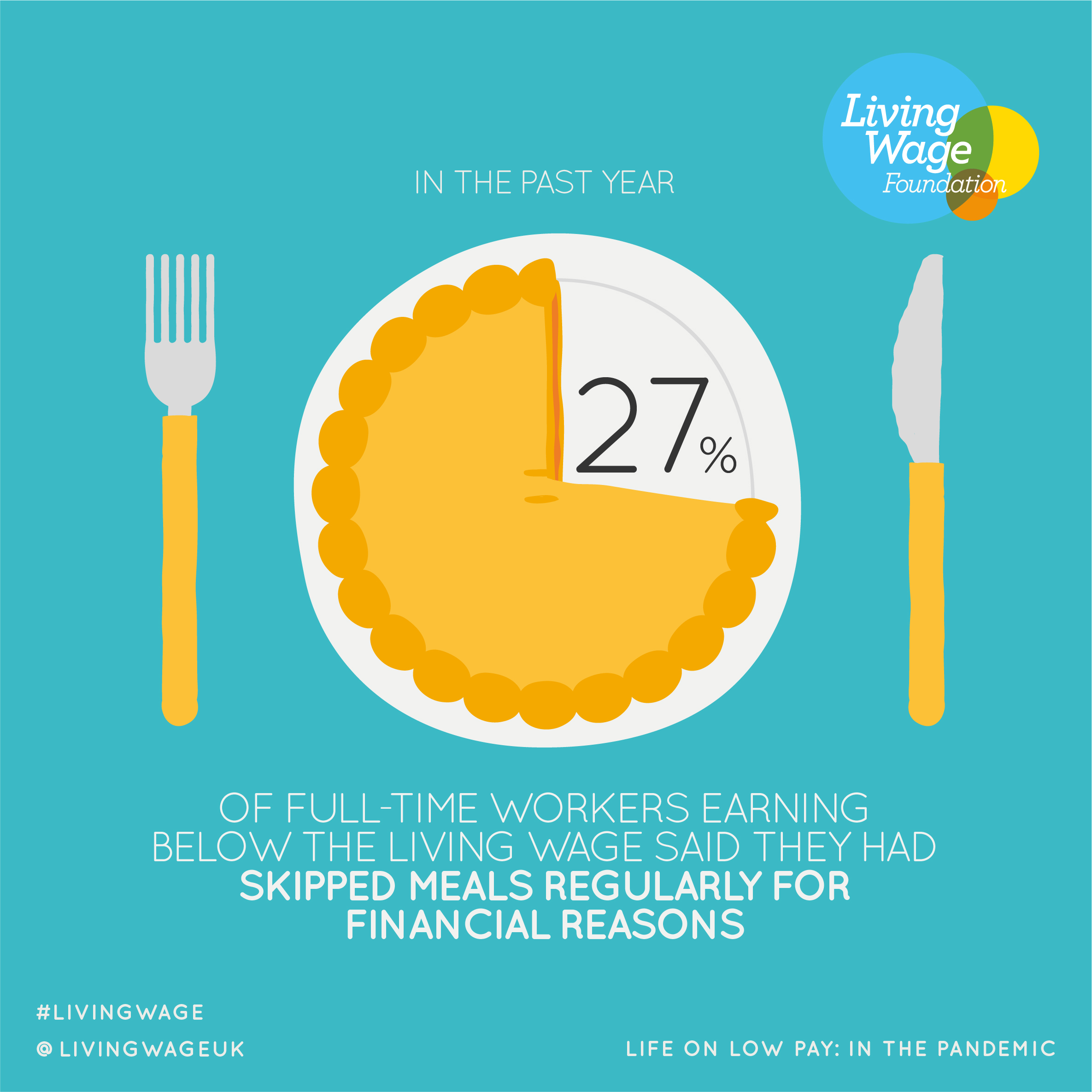Emily Roe, Campaigns Manager for the Living Wage Foundation and Sabine Goodwin, Coordinator of Independent Food Aid Network
This week, the Living Wage Foundation announced the new real Living Wage rates of £9.90 (UK) and £11.05 (London). The rate is independently calculated every year to accurately reflect the true cost of living in the UK and means those who are paid the rate earn enough to have a decent standard of living; enough to cover the basics like food, rent, bills, and an occasional trip to the cinema or museum - things many of us take for granted. That's why decent wages are fundamental to the Independent Food Aid Network's (IFAN) calls for a cash first approach to food insecurity and income-based solutions to the growing poverty driving food bank use in the UK.
R.png

Independent food banks have long-supported people who are in work and impacted by food insecurity. As the cost of living rises, we are seeing more people in work and using food banks than ever before. And the spectrum of jobs using our services has widened. Independent food banks are supporting courier drivers, supermarket workers, delivery drivers, carers, nurses, social workers and cleaners. As low pay is a key driver behind the use of their food banks, it has never been more important for businesses to pay a real Living Wage.
The Living Wage Foundation's 'Life on Low Pay' report reinforced the link between low pay and food insecurity. The research found that 27 percent of workers earning below the real Living wage regularly skipped meals - that's over one million people. And just this week, findings from a care worker survey published by Citizens UK found that 56 percent of care workers in the UK say they skip meals due to low pay and 73 percent said they struggle to afford essentials like food and bills. The reality is that working hard to care and feed the country - care workers, delivery drivers, supermarket workers - cannot put food on the table for their families.
Against this backdrop, there's an increasing interest from businesses, particularly supermarkets, in backing campaigns to "fight" or "end food poverty", as shown by the multitude of big supermarket names on Marcus Rashford's
21_02_04_LW_Stats_SkippingMeals_Insta.jpg

End Child Food Poverty Task Force. Indeed, just this week Tesco called for donations to FareShare and the Trussell Trust for the "UK's biggest food collection" - #EveryCanHelps.
But not one UK supermarket is accredited with the Living Wage Foundation, leaving many of their workers struggling to afford food. 45 percent of supermarket workers - over 400,000 - earn below the real Living Wage and research last year found that one in three worried about whether they could put food on the table. We often see supermarket workers using food banks. Yet it's not uncommon that supermarket workers delivering surplus food to a food bank one day, will access that very same food bank for emergency food support days later.
Emergency food parcels provide crucial support in the moment of need, but they're sticking plasters on the problem of low pay. We must not lose sight of why people are food insecure in the first place. We need a cash first approach to food insecurity to be prioritized so that income-based solutions come before emergency food - businesses who are serious about ending food poverty must pay their own staff a real Living Wage.
IFAN has been working with local stakeholders including food banks and local authority teams across the UK to co-produce cash first referral leaflets.These resources are aimed at helping people access any existing financial entitlements and maximize their income so reducing the need for food aid. Food bank teams know their services shouldn't be needed and the cash first message is filtering through.
To quote Bishop Desmond Tutu, 'There comes a point where we need to stop just pulling people out the river. We need to go upstream and find out why they're falling in'. A real Living Wage will certainly help to reduce the need for charitable food aid. Food poverty isn't inevitable and there's no doubt that changing practices will stop people falling in the river.
We'd encourage any business that wants to end food poverty to step up, do the right thing and join the 9,000 businesses already accredited with the Living Wage Foundation. Find out more and become a Living Wage Employer by clicking here.
